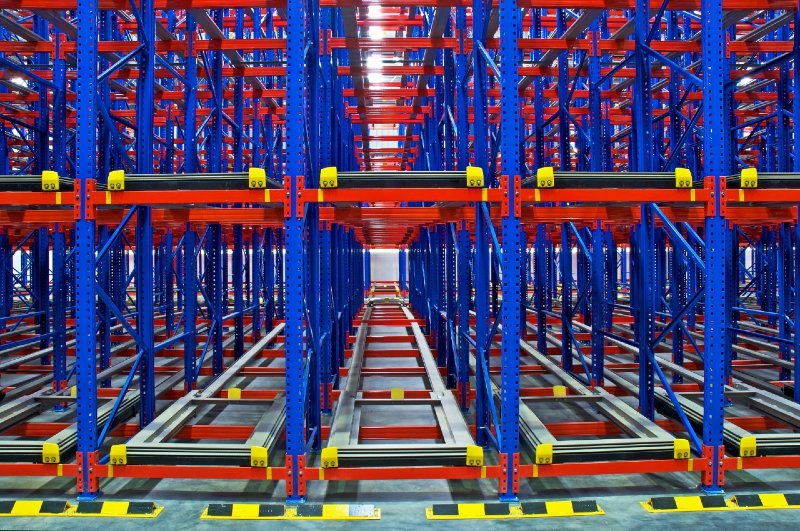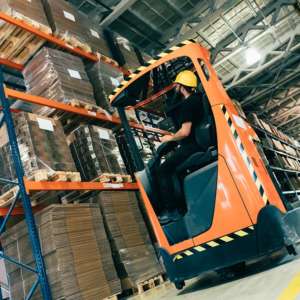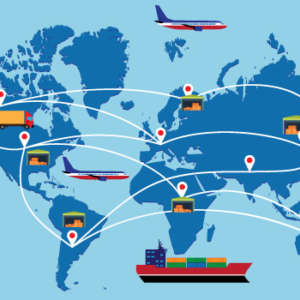8 Things to Consider Before Choosing In-House Fulfillment
The product fulfillment part of every business is seldom talked about. This makes it difficult for new businesses to choose between in-house fulfillment or hiring a third-party fulfillment company. If you are a new business looking for the best option between in-house and third-party companies, here is everything you need to know in order to make the best decision for your business. While the fulfillment part of the business might look like it has less impact on your business, one mistake in that department can have dire consequences on your overall business. To avoid mistakes that could hurt your brand, these are 8 things to look out for when utilizing in-house fulfillment to avoid costly mistakes.
1. A sudden increase in order volume will hurt you
A sharp increase in order volume can and will hurt your fulfillment process if not managed right when using in-house fulfillment. Here is a story that outlines why a sudden increase in order volume can hurt you based on a real-life situation.
A friend of mine (let’s call him James) who owns an international distribution firm sells a niche line of products made by several manufacturers. His company was doing okay with its daily output of a hundred plus orders per day from his own warehouse. As a way of pivoting, James signed a contract with a lucrative brand which came with exclusive rights to distribute the new brands product. After the partnership, the new brand ran heavy marketing campaigns for a new product launch. As a result, James company had a large flow-in of customers who were intrigued by the new niche product due to the marketing campaign. This resulted in 3 times the usual order overnight. Was he happy? Who would not? After all, the goal of every business is to make more sales.
The repercussion
While they were prepared to handle the increase in sales, the fulfillment department was not ready. This is a common mistake new and even old businesses make. They are always prepared to make more products but always forget to make room in their fulfillment.
Pre-orders kept coming in, and in time, so did the products. It was eventually time to fulfill the products to thousands of waiting customers. While the products were ready, the fulfillment was instantly behind schedule. With only a week’s notice, they were not prepared for such a huge workload – they had neither the time to train new warehouse workers or make new hires. This made it impossible to ship products on time.
And then…. Hundreds of emails started coming in from customers asking about the delivery delay. After a weekend off, the three-person customer service team James had woken up to thousands of new emails. Battling a bursting inbox, and at the same time consoling angry, and upset customers meant every hand had to be on deck working weekends, and extra hours. Cash over time bonus had to be offered to the customer service team to work weekends in order to achieve inbox zero. Worse yet, it resulted in refunding many unhappy customers who had paid for quicker delivery (which meant the company took a double loss – paying for the expedited shipping and the customer refund).
In the end… While James was able to defuse the situation, clear pending orders, and satisfy most of his loyal customers – it cost the company valuable time, and way too much money. Ultimately, the problem in the fulfillment process also heavily affected their customer service team and their marketing department. It could have cost them even more if not for the team who went the extra mile to defuse the situation.
2. Slow or late order shipments
Your business is bound to suffer if you are having trouble getting your products into the hands of your customers as fast as possible. Like I mentioned in #1, a sudden spike in order volume can lead to a bottleneck in fulfillment operations. This could be because of seasonal demand increase. E.g. festive season.
If your daily order size is small, your best bet is in-house fulfillment. However, if you are focusing on marketing your business, and you get your desired result, an increase in order may mean late shipments if you are not prepared. This can turn customers who originally love your product to leave you negative reviews on the account of late delivery.
Other times, late order fulfillment can be caused by uncontrolled circumstances such as sick employees, or employees on vacation. This can be problematic for your customer service team (compounding the effect and increasing the cost to you).
3. You need vast experience to manage in-house fulfillment
In day to day activities, a lack of expertise might look like this:
- Wearing “too many hats” (Being a jack of all trade)
- Learning on the job, and being forced to find solutions to problems you have never encountered before
- Taking time away from the more important tasks only you can perform.
Except you started your product-based company to become a fulfillment expert, then you’ll want a fulfillment logistic specialist on your team. This will give you time to spend on other things that matter in your business. Without having a fulfillment expert spearhead your fulfillment process, your logistics can easily become outdated, and suffer from inadequacies that will be difficult to pinpoint.
A fulfillment expert as a partner can become a key relationship when looking to grow and scale your business. This is because your business success ultimately means the success for the fulfillment business. Therefore, the right fulfillment company is invested in your growth just as much as you are to theirs. It’s best you focus on your core competencies. How is your time best spent? How is your employees’ time best spent? Etc.
4. Mistakes or delays in receiving inventory
Without a fulfillment expert spearheading your fulfillment process, silly mistakes are bound to occur. This could be little things such as improperly receiving inventory into your system.
Furthermore, if your team is already being pressured in order fulfillment, they may begin postponing tasks of receiving new inventory into the system. This will in turn lead to valuable inventory being left on pallets and clogging up your warehouse space. This can lead to the warehouse manager choosing to postpone receiving new pallets into the systems or afford delays in shipping.
5. Turnover, and training new hires or seasonal employees
Turnover hasn’t never been considered fun by anyone; however, it is a part of business. Every time there is an employee position to be filled, this means more time, and money spent on hiring processes. This includes training, and certification if any. However, you may think it is simply a part of the business. Afterall, you need enough people ready to pack, pick, receive, manage, and replenish inventory.
Similarly, when hiring new staff in preparation for a busy season (holidays, and January rush), you utilize resources in hiring and training staff that will not be around for long. This is quite the most inefficient practice out there, as you eventually must let these new hires go after the season. Hiring In-house staff also comes with responsibilities such as payroll, management, and performance reviews amongst others.
6. Inadequacies
Inadequacies with your business is a broad topic that covers every area of your business. There are countless ways a company can experience inefficiencies that will affect her In-house fulfillment.
Some examples include:
- Employee mistakes and the retraining processes
- Over-paying for supplies due to low order volume and minimum order quantities
- Overpaying for shipping due to dimensional weight
- Having to replace products damaged in transit due to poorly packed boxes
- Overpaying for labor due any of the following: slow, inefficient, non-expert workers
- Spending too much time receiving, managing, packing, picking, and shipping orders. This is especially an inefficient task if you are the one handling these tasks.
- Improper processing of backorder
- Lacking a warehouse management system
- It can also be possible that you are spending way money on the overall fulfillment process. Determine your fulfillment cost-per order to compare the price of in-house fulfillment to outsourced fulfillment, including:
- Storage and facility costs.
- Labor costs.
- Packing material costs.
- Shipping cost
- The location of your business can also be a factor for high shipping rate. This is also dependent on where you are shipping to. If you are in the East Coast of the U.S, consider shipping from a warehouse more centrally located to reduce your shipping cost.
7. Security
In the past, many businesses have lost a lot due to a data breach in their system. From client’s inventory, financial details, shipping address and a lot more can be stolen due to data breach. Therefore, security is an issue that might affect your fulfillment decision. If your security measures are not up to date, you might be vulnerable to data breach which can be harmful for your business. If you cannot have the right security measures to protect your logistics, it’s probably best you hire a logistic firm.
8. Inadequate storage planning
Real estate can be expensive, and as such, one must be decisive when choosing a lease. If you are already paying more than you should on warehouse space, imagine having to run out of space. While you want your business to grow, you also have to be ready for the cost of growth. One of the biggest problems in-house fulfillment faces is that firms imprison themselves into long- term leases due to inaccurate forecasts on their business needs.
The Bottom Line
These are the 8 things that could go wrong with in-house fulfillment. Now that you know what to expect, you can either plan or hire a logistics company to help you handle fulfillment.
If you are at the stage of your business where your order has not exceeded more than you can handle, you can develop strategies that will save you from running into any of the above problems. While you do that, understand that your business is never perfect. Running into a few challenges occasionally as regarding fulfillment will only add to your experience and help you best handle similar situations in the future.




